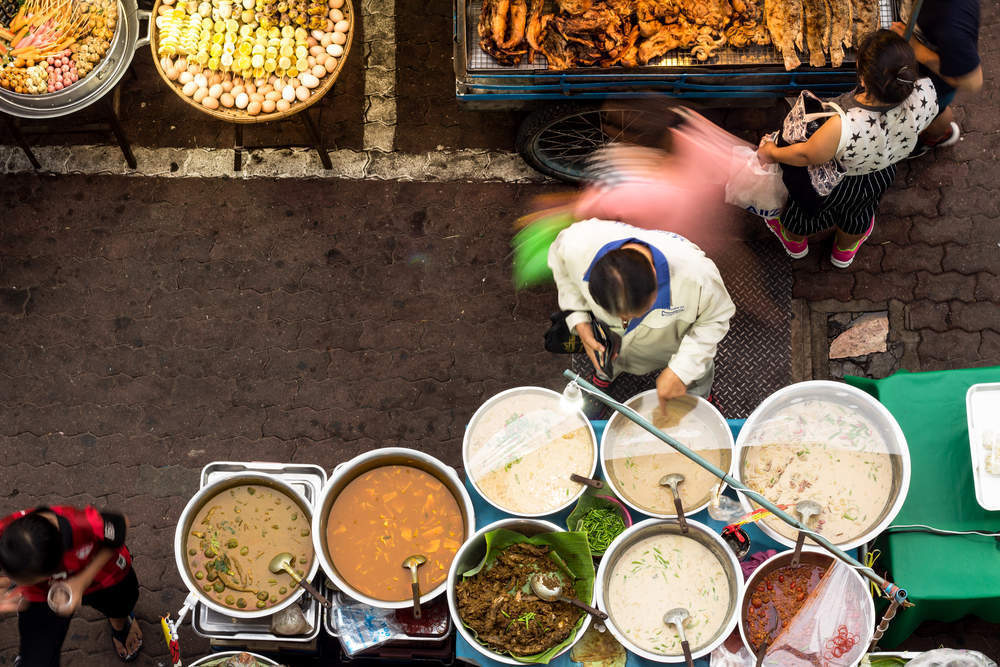In recent years, the number of food and drink enthusiasts around the world has risen rapidly giving way for verity of culinary experiences from fine dinning under the sea to the more authentic sharing economy like dinning experiences.
Globalisation, coupled with a shift in cultural and economic influence from West to East and the boom in travel flows around the world, is resulting in consumers becoming increasingly familiar with different food cultures.
TV programs about cooking, travelling, but also cooking competitions, have equally had a positive impact on the growing public passion for gastronomy.
Food and drink play a role in our travel plans
According to GlobalData’s consumer survey Q3- 2018, 27.6% globally argued that the popularity of a destination in terms of food and drinks is a factor that helps them decide where to go on holiday. The same survey showed that generation Z and millennials find local cuisine more influential when choosing a destination, compared to generation X and baby boomers.
Given that people traveling abroad, and in particular millennials, are increasingly seeking authentic and transformative travel experiences, local cuisine provides them with a unique lens through which they can better understand the history, people and the culture of the destinations they visit.
Tourism players wanting to tap into this cohort, must capitalise on the rise of culinary tourism and by combining gastronomy with other activities such as cultural tours and wellness activities, tailor products that meet the demands of travellers wanting to experiment with food during their trips.

US Tariffs are shifting - will you react or anticipate?
Don’t let policy changes catch you off guard. Stay proactive with real-time data and expert analysis.
By GlobalDataDining in someones home for the most authentic of experiences
Some of the key trends redefining culinary tourism in recent years are the rise of street food and food markets, cooking lessons with locals, and gastronomy tours with locals or experts.
Yet, a new trend becoming increasingly influential within food tourism is home cooking and meal sharing.
Whereas local restaurants and food tours allow tourists to get a glimpse into a region’s gastronomy, they cannot compare to having the opportunity to dine in a local’s house and get to experience how a family interacts while cooking and eating together, thus, witnessing the traditions surrounding food culture first-hand.
This fact, coupled with the greater quest for authentic travel experiences, has given rise to the trend of tourists wanting to join locals to share home cooked meals and get to know each other.
EatWith, a meal sharing app known as the AirBnb of food, has sought to capitalise on the growing demand for unique and authentic travel experiences by launching a platform that allows its users to connect with local hosts at the destinations they are visiting. In particular, travelers can undertake cooking lessons with hosts, cook together and share meals while getting a glimpse of the lives of locals by visiting their homes.
EatWith and other providers
EatWith is an innovative platform as it allows its users to discover a new culture through gastronomy. Since 2012, the app has grown to include food experiences in more than 150 cities around the world, becoming an increasingly valuable travel tool for tourists seeking to create unique travel memories.
The trend of home cooking and meal sharing is particularly popular in Cuba. Since Raul Castro’s economic reforms started in late 2010, Cuba has witnessed a surge in new private owned restaurants that are known as ‘paladares’.
Though these restaurants can be found around the island-nation, the majority are in Havana, and range from small areas in a local’s apartment to farms, and spaces resembling more Western restaurants.
There, tourists can enjoy Cuban cuisine while having the opportunity to interact and get to know local people, hence, getting a more unique insight into the destination.
As competition between tourist destinations intensifies, tourism boards and businesses must seek to diversify their offering propositions by looking at the intangible cultural heritage of their regions, and leveraging elements such as gastronomy is a key way to do so.
From the introduction of tailored gastronomy tours with locals, to promoting the street food culture and food markets, and prioritising gastronomy in the national or regional tourism agendas, tourism players must tailor unique products that match the needs of food enthusiasts looking for hyper-local food experiences and rich cultural context.








